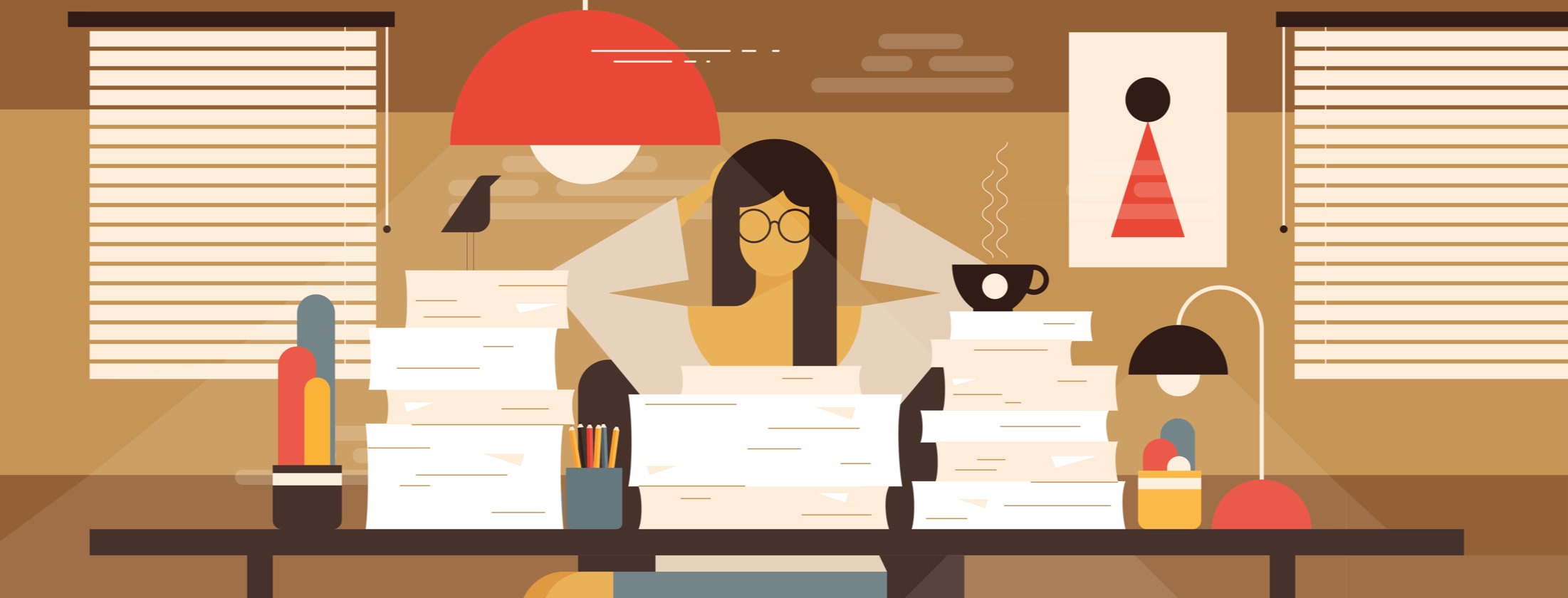Staying Organized When You Have Psoriatic Arthritis
Despite being raised by flawlessly organized parents, I’ve somehow managed to pick up very few of the same traits. Rarely one to throw important papers away, I’ve managed to hoard stacks upon stacks of paperwork related to my health and life with psoriatic arthritis. Perhaps I’m the last person that should be giving “tips” on staying organized when you have psoriatic arthritis. However, I do know how overwhelming it can feel, even to get started.
Staying organized when you living with any chronic conditions is certainly not fun, but it is necessary. It is important to keep clean, clear, and organized medical information so that you can be your own best advocate for your health. Managing health-related paperwork, and all paperwork for that matter, can help reduce stress resulting in one less trigger for another flare. In addition, it will make applying for any disability documentation or assistance much easier.
Medical records
Requesting medical records is not fun, but necessary. Having these available, and organized will make finding a new doctor and making medical decisions much easier. In addition, having access to complete medical records will allow you to see the “big picture” of your health and history.
Medical bills and insurance information
Having each procedure/event/appointment and corresponding insurance statements and bills all filed together can save hours in the long run. In my experience, the best way to organize these is monthly, then store in files yearly. Yes, it may seem like a lot, but with insurance, you can never be too sure. And yes, some will probably argue that many of these same documents are available in digital format and that’s fine. Just MAKE SURE if you choose to go that route, that you have access to the records not only in the “cloud” but also in an offline format such as a flash drive.
Easily accessible and shareable information
Symptoms/side effects/medication listings with dosages and directions
When it comes to keeping track of these, it is especially important for the caretaker(s) to be aware of where to find this information. The easiest way to do this is to keep up-to-date tracking information in the form of a planner or journal. There may be times when you can’t speak for yourself and these can give your caretaker and doctors a good idea about what might be going on.
Complete lists of doctors, with addresses and contact information
I cannot stress this enough. If you are an “electronic” person, make a note of these is your caretakers phone. Print out a list of these and place them by your phone in your home. Keep a notecard version in your wallet. Unfortunately, sometimes timely decisions have to be made and you want the doctors who know you and your diagnosis best to be able to lead and monitor your treatment.
“Official” diagnoses, suspected diagnosis, and medical history of procedures, events, and dates
A pared down version of your medical records, this listing will be able to give doctors and nurses a broad view of your overall health picture.
Living will or trusts
Perhaps this one will be the most difficult to discuss, especially with family or friends. No one knows what the future will hold and history tells us that it is best to be prepared. Always make sure that in the event of an emergency, and you can’t verbalize your wishes about your care, that you have all of your wishes clearly spelled out and NOTARIZED (don’t forget that step!).
Yes, it is a necessary evil
I’ll be the first to admit, organizing paperwork is seriously right up there with cleaning the toilets in my fun things to do list. But it is a necessary evil and one that should you ever need it, you will be very grateful that you completed. Don’t cause yourself and loved ones further stress by leaving your medical paperwork a hot mess.

Join the conversation